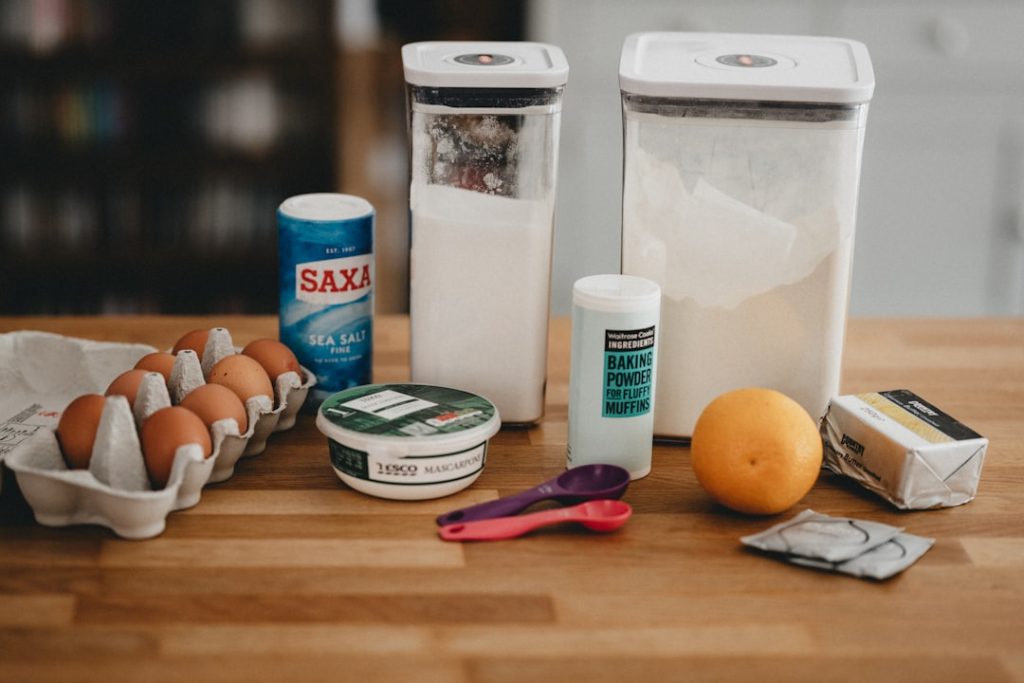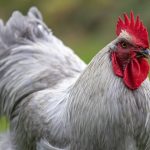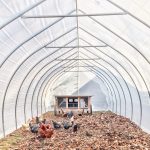Bird flu, or avian influenza, is a highly infectious viral disease affecting various bird species, including chickens. The virus spreads quickly within flocks and can cause severe illness and mortality in infected birds. Multiple strains of bird flu exist, with varying levels of pathogenicity and lethality.
The disease can have devastating effects on chickens, resulting in significant economic losses for poultry farmers. Infected chickens may display symptoms such as respiratory distress, reduced egg production, diarrhea, and sudden death. The virus can also infect other poultry species and, in some instances, humans.
Bird flu outbreaks can lead to trade restrictions, market closures, and public health concerns, in addition to directly impacting chicken health and welfare. It is essential for poultry farmers to comprehend the nature of bird flu and its potential effects on their flocks to implement effective prevention and control strategies. Bird flu poses a serious threat to the poultry industry, and understanding its impact on chickens is crucial for implementing appropriate biosecurity measures and reducing infection risks.
Recognizing bird flu symptoms in chickens allows farmers to take proactive steps to protect their flocks and prevent virus transmission. Furthermore, awareness of the potential consequences of a bird flu outbreak can motivate farmers to prioritize biosecurity and disease prevention on their farms.
Table of Contents
- 1 Implementing Biosecurity Measures to Prevent Bird Flu
- 2 Vaccination and Regular Health Checks for Chickens
- 3 Proper Cleaning and Disinfecting of Chicken Coops and Equipment
- 4 Limiting Contact with Wild Birds and Other Poultry
- 5 Monitoring and Reporting Any Signs of Illness in Chickens
- 6 Seeking Professional Veterinary Advice and Assistance
- 7 FAQs
Key Takeaways
- Bird flu can have a significant impact on chickens, causing illness and death in infected flocks.
- Implementing biosecurity measures is crucial to prevent the spread of bird flu among chickens.
- Vaccination and regular health checks are important for maintaining the overall health of chickens and preventing bird flu outbreaks.
- Proper cleaning and disinfecting of chicken coops and equipment can help eliminate potential sources of bird flu contamination.
- Limiting contact with wild birds and other poultry can reduce the risk of bird flu transmission to chickens.
- Monitoring and reporting any signs of illness in chickens is essential for early detection and containment of bird flu.
- Seeking professional veterinary advice and assistance is important for effectively managing and treating bird flu outbreaks in chickens.
Implementing Biosecurity Measures to Prevent Bird Flu
Controlling Access and Hygiene Practices
One of the key biosecurity measures is controlling access to the farm, including limiting the entry of unauthorized individuals and vehicles. This helps reduce the risk of introducing the virus from external sources. Furthermore, maintaining strict hygiene practices, such as providing foot baths and hand sanitizing stations at entry points, can help prevent the spread of bird flu. Farmers should also establish designated areas for changing clothes and boots before entering poultry houses to minimize the risk of contamination.
Visitor Policy and Bird Movement Control
Implementing a strict visitor policy and requiring all visitors to adhere to biosecurity protocols can further reduce the risk of disease introduction. Another important biosecurity measure is monitoring and controlling the movement of birds within the farm. This includes separating different age groups of chickens, restricting access to communal water sources, and preventing contact between domestic poultry and wild birds.
Protecting Flock Health
By implementing these biosecurity measures, poultry farmers can significantly reduce the risk of bird flu outbreaks and protect the health of their flocks.
Vaccination and Regular Health Checks for Chickens

Vaccination plays a crucial role in protecting chickens from bird flu and other infectious diseases. There are several commercially available vaccines that can provide immunity against specific strains of bird flu. Poultry farmers should work with their veterinarians to develop a vaccination program tailored to the specific risks and challenges on their farms.
Vaccinating chickens can help reduce the severity of illness and minimize the spread of the virus within a flock. In addition to vaccination, regular health checks are essential for monitoring the well-being of chickens and detecting any signs of illness early on. Farmers should establish a routine schedule for health checks and be vigilant for any changes in behavior or appearance that may indicate a potential health issue.
Early detection of bird flu or other diseases can help prevent the spread of infection and minimize the impact on the flock. Furthermore, maintaining accurate records of vaccinations, health checks, and any observed symptoms is important for tracking the health status of the flock over time. This information can be valuable for identifying trends, evaluating the effectiveness of biosecurity measures, and making informed decisions about disease prevention and control strategies.
By prioritizing vaccination and regular health checks, poultry farmers can take proactive steps to protect their flocks from bird flu and other infectious diseases.
Proper Cleaning and Disinfecting of Chicken Coops and Equipment
Proper cleaning and disinfecting practices are essential for reducing the risk of bird flu transmission within poultry houses and on farm equipment. Thoroughly cleaning chicken coops, equipment, and other facilities helps remove organic matter and potential sources of contamination. Farmers should use appropriate cleaning agents and disinfectants that are effective against bird flu virus and follow recommended protocols for application.
In addition to routine cleaning and disinfecting, it is important to establish a strict protocol for cleaning and disinfecting in the event of a suspected or confirmed bird flu outbreak. This may involve implementing enhanced biosecurity measures, such as restricting access to affected areas, using dedicated equipment for cleaning and disinfecting, and disposing of contaminated materials properly. By following these protocols, farmers can help contain the spread of the virus and minimize its impact on the flock.
Furthermore, maintaining a clean and hygienic environment within poultry houses can help reduce stress on chickens and support their overall health and well-being. Proper ventilation, litter management, and waste disposal practices are also important for creating a healthy living environment for chickens. By prioritizing proper cleaning and disinfecting practices, poultry farmers can minimize the risk of bird flu transmission and promote the overall health of their flocks.
Limiting Contact with Wild Birds and Other Poultry
Limiting contact between domestic poultry and wild birds is essential for preventing the introduction and spread of bird flu on poultry farms. Wild birds can carry the virus without showing any signs of illness, making it difficult to detect and control its spread. Poultry farmers should take proactive measures to minimize the risk of contact between their flocks and wild birds by implementing physical barriers, such as netting or fencing, around poultry houses and outdoor areas.
Additionally, farmers should be vigilant for any signs of wild birds attempting to access feed or water sources intended for domestic poultry. By monitoring for potential interactions between wild birds and chickens, farmers can take proactive steps to minimize the risk of disease transmission. It is also important to discourage wild birds from roosting or nesting near poultry houses to reduce the risk of contamination.
In addition to limiting contact with wild birds, it is important to minimize contact between different flocks of poultry on the farm. This may involve implementing separate feeding and watering stations for different groups of chickens, as well as establishing designated areas for each flock to minimize the risk of disease transmission. By prioritizing these measures, poultry farmers can reduce the risk of bird flu introduction and spread on their farms.
Monitoring and Reporting Any Signs of Illness in Chickens

Observing Flock Behavior and Dynamics
In addition to monitoring individual chickens, farmers should observe flock behavior and dynamics for any signs of illness or distress. Any unusual behavior or symptoms should be promptly reported to a veterinarian for further evaluation. Early detection of bird flu or other infectious diseases is crucial for implementing effective control measures and minimizing the impact on the flock.
Establishing Clear Protocols for Reporting Illness
It is essential for poultry farmers to establish clear protocols for reporting any signs of illness to relevant authorities, such as local animal health agencies or veterinary services. Timely reporting of suspected cases of bird flu is essential for initiating disease control measures, conducting diagnostic testing, and preventing further spread within the region.
Contributing to Early Detection and Control of Bird Flu Outbreaks
By prioritizing monitoring and reporting any signs of illness in chickens, farmers can contribute to early detection and control of bird flu outbreaks. This proactive approach can help prevent the spread of disease, reduce economic losses, and protect public health.
Seeking Professional Veterinary Advice and Assistance
Seeking professional veterinary advice and assistance is essential for developing effective disease prevention and control strategies on poultry farms. Veterinarians play a crucial role in providing guidance on biosecurity measures, vaccination programs, health monitoring protocols, and disease management strategies. Poultry farmers should establish a working relationship with a veterinarian who has experience in poultry health management.
In addition to seeking veterinary advice for routine health management, farmers should also consult with a veterinarian at the first sign of any unusual symptoms or illness in their flocks. Veterinarians can conduct diagnostic testing to confirm the presence of bird flu or other infectious diseases and provide guidance on appropriate treatment options. They can also offer valuable insights into disease prevention strategies tailored to the specific risks and challenges on individual farms.
Furthermore, veterinarians can provide ongoing support and guidance for implementing biosecurity measures, conducting regular health checks, and maintaining a clean and hygienic environment within poultry houses. By working closely with a veterinarian, poultry farmers can access valuable expertise and resources to protect their flocks from bird flu and other infectious diseases. Prioritizing professional veterinary advice and assistance is essential for promoting the health and well-being of chickens on poultry farms.
If you’re looking for ways to keep your chickens safe from bird flu, you may also be interested in learning about how to build a large chicken coop to provide them with a safe and comfortable living space. Check out this article on large chicken coop ideas for some helpful tips and inspiration.
FAQs
What is bird flu?
Bird flu, also known as avian influenza, is a viral infection that primarily affects birds. It can also infect humans and other animals in some cases.
How can chickens get bird flu?
Chickens can get bird flu through contact with infected birds, contaminated surfaces, or through the air. The virus can be spread through bird droppings, saliva, and respiratory secretions.
What are the symptoms of bird flu in chickens?
Symptoms of bird flu in chickens can include respiratory distress, decreased egg production, swelling of the head, blue discoloration of the comb and wattles, and sudden death.
How can I prevent my chickens from getting bird flu?
To prevent bird flu in chickens, it is important to practice good biosecurity measures, such as keeping the coop and surrounding areas clean, limiting contact with wild birds, and monitoring the health of your flock regularly.
Can humans get bird flu from chickens?
Yes, humans can get bird flu from infected chickens, especially if they come into close contact with sick birds or their droppings. However, the risk of human infection is generally low.
What should I do if I suspect my chickens have bird flu?
If you suspect your chickens have bird flu, it is important to contact a veterinarian or local animal health authorities immediately. They can provide guidance on testing, treatment, and containment measures.
Meet Walter, the feathered-friend fanatic of Florida! Nestled in the sunshine state, Walter struts through life with his feathered companions, clucking his way to happiness. With a coop that’s fancier than a five-star hotel, he’s the Don Juan of the chicken world. When he’s not teaching his hens to do the cha-cha, you’ll find him in a heated debate with his prized rooster, Sir Clucks-a-Lot. Walter’s poultry passion is no yolk; he’s the sunny-side-up guy you never knew you needed in your flock of friends!







